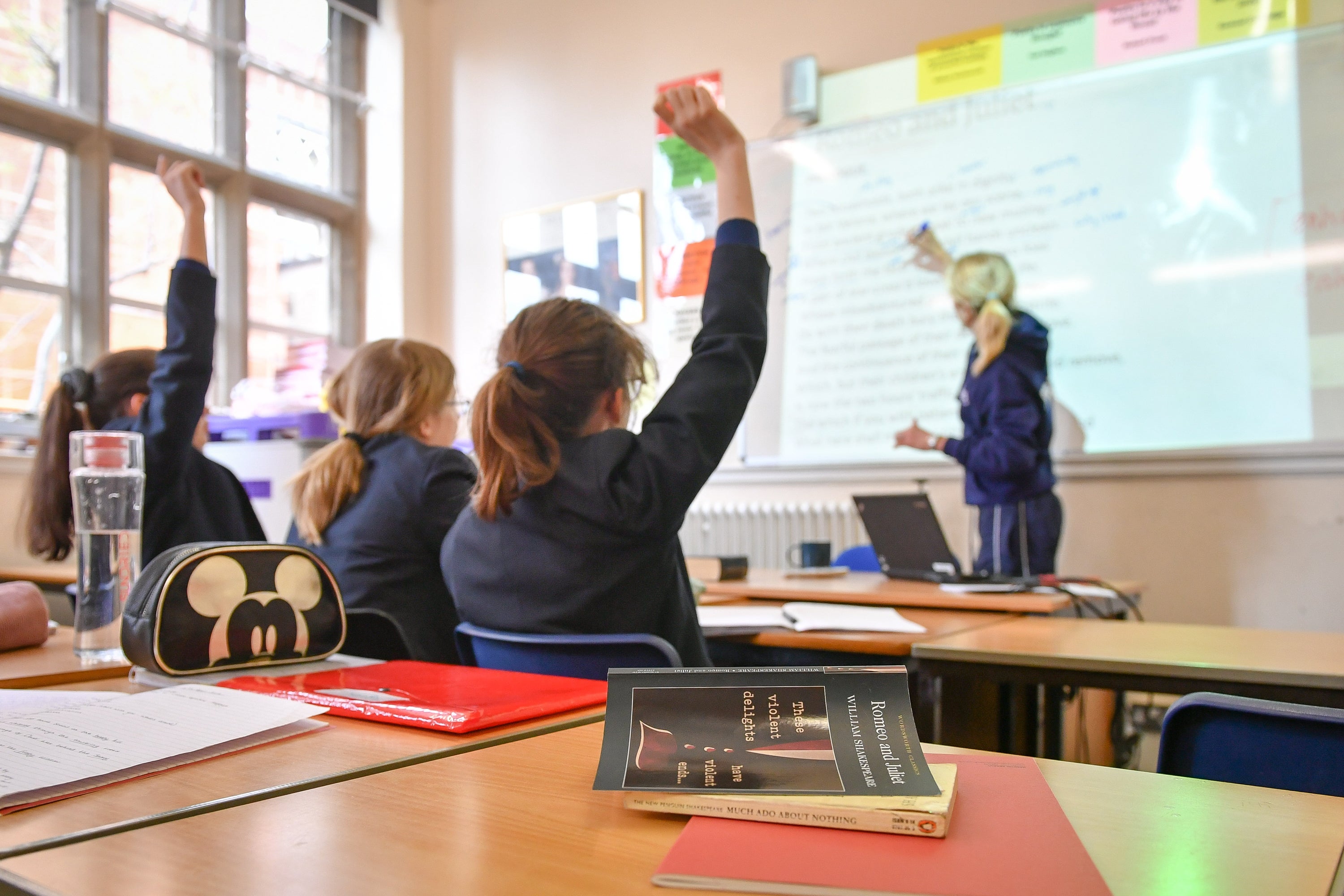Union warns of concerns over pupils missing ‘high-stakes’ mock exams
Schools will be worried about whether they can run mocks in the new term with rising pupil absences due to Covid-19.

Your support helps us to tell the story
From reproductive rights to climate change to Big Tech, The Independent is on the ground when the story is developing. Whether it's investigating the financials of Elon Musk's pro-Trump PAC or producing our latest documentary, 'The A Word', which shines a light on the American women fighting for reproductive rights, we know how important it is to parse out the facts from the messaging.
At such a critical moment in US history, we need reporters on the ground. Your donation allows us to keep sending journalists to speak to both sides of the story.
The Independent is trusted by Americans across the entire political spectrum. And unlike many other quality news outlets, we choose not to lock Americans out of our reporting and analysis with paywalls. We believe quality journalism should be available to everyone, paid for by those who can afford it.
Your support makes all the difference.Headteachers are worried that pupils isolating because of Covid-19 could miss “high-stakes” mock exams for their GCSEs and A-levels at the start of term, the head of a school leaders’ union has said.
Geoff Barton general secretary of the Association of School and College Leaders (ASCL), said some schools would “presumably be thinking about doing mock exams next week for exam groups”.
He said: “I think one of the concerns will be what if we find that there’s quite a lot of young people who aren’t around to be able to do those mock exams – do they need to be changed to another time?”
Mr Barton said this would be less of an issue “in normal times” but that the mocks were more “high stakes” this year as they could be used as a back-up if exams were cancelled.
“Of course, they have been made more high-stakes this year because we know that as a kind of safety net they may end up counting in the instance that some young people can’t do their exams in the summer,” he told the PA news agency.
The question is whether Christmas has worked as a kind of circuit-breaker or whether ... you very quickly get increased numbers of staff being affected. There's just lots of uncertainties
“So, it’s not a case of saying ‘let’s not bother with mocks’, because you will need to do those mocks at some point.”
Mr Barton said schools would need to think about when to run mocks if they could not take place next week.
He added that schools would also be considering whether to change attendance patterns if they did not have enough staff to cover classes in the new year, although he stressed this would be at the “bottom of the list” of heads’ contingency planning.
“We just don’t know how much that will be the case, but we know it was the case going into Christmas,” he said.
“The question is whether Christmas has worked as a kind of circuit-breaker or whether what we’re going to see, with almost ten million children going back into schools next week, whether actually you very quickly get increased numbers of staff being affected. There’s just lots of uncertainties.”
He said schools were doing “scenario planning” before their pupils returned and that “in the worst-case scenario, if you couldn’t cover all of your year groups in that situation, you would have to make a decision – in secondary, for example, are you going to say exam classes come back and others are remote learning?”
Mr Barton said heads did not want this to happen but were “basically doing what wasn’t done by the Government last year, which was scenario planning”.
Schools might also run staggered returns as they carried out on-site testing of pupils, he said.
In November, exams regulator Ofqual published guidance advising that A-level and GCSE students should sit termly assessments to ensure there was enough evidence to determine their grades in case exams were cancelled again.
Ofqual published guidance for teachers on how they should gather evidence to assess pupils’ performance if exams could not go ahead in 2022, with teachers advised to assess students “under exam-like conditions wherever possible” to help inform teacher-assessed grades (TAGs) if needed.